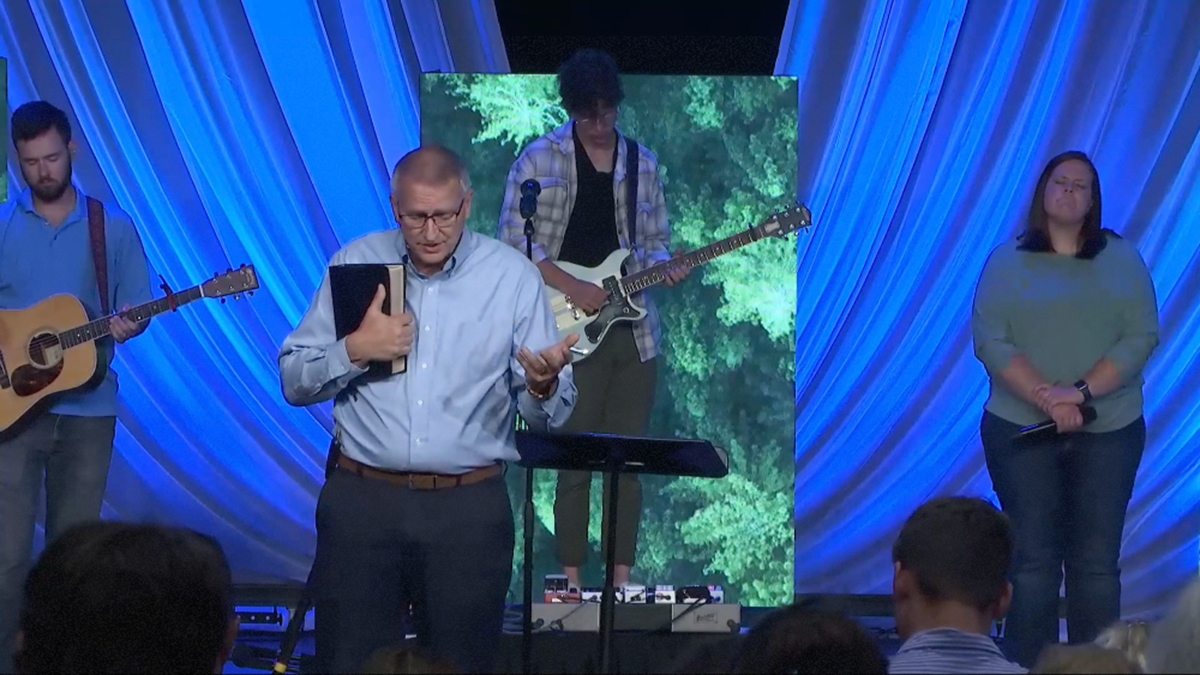Eight congregations have broken away from the Christian and Missionary Alliance (CMA) over the denomination’s decision to ordain women and allow them to carry the title of “pastor.”
The change was approved by a majority of delegates at the Alliance’s general council in June, after several years of discussion. According to an internal study, it is supported by more than 60 percent of the denomination of about 414,000 people.
Women in the Alliance could previously be “consecrated” to ministry and serve as “Consecrated Women of God,” even preaching and teaching in Sunday services, at the discretion of local churches. The Alliance has a history of encouraging women to preach and sending them to plant churches while still placing restrictions on their “ecclesial authority.” The updated polity maintains this distinction and does not allow women to serve as elders or senior pastors in CMA churches. The consecration process will now result in ordination.
“We take a rather unique centrist position in our polity on this issue,” CMA vice president Terry Smith told CT. “For some, this stretched beyond where their convictions would allow them to go.”
The elders at Alliance Bible Fellowship in Boone, North Carolina, voted unanimously to separate in July.
“This decision was not easy. In fact, it grieves us,” senior pastor Scott Andrews said. “Our hearts are grieved to see the direction that we believe the CMA is taking that we just cannot follow.”
Andrews called the change “a significant step toward egalitarianism, which eliminates any gender distinction in the roles of men and women in the church.”
The church is one of the larger and more prominent CMA congregations in the South. Vice president Mike Pence visited in November 2020 as the special guest of Billy Graham Evangelistic Association and Samaritan’s Purse CEO Franklin Graham. A little more than 1,000 attend every Sunday, and on the congregation’s website, newcomers are directed to a special page with information about the church’s commitment to complementarianism, separate from the general “What We Believe” statement.
According to Andrews, “Alliance is the same church we were two months ago [and] 40 years ago. It is not we who have changed; it is the CMA which has changed.”
The other seven departing churches have not made prominent public statements about their decision to separate. The majority of them are in the CMA’s southern district, according to multiple sources involved with the internal workings of the denomination. The region’s superintendent, Mick Noel, has been visiting congregations in East Tennessee, North and South Carolina, Georgia, Alabama, Mississippi, and the Florida panhandle, trying to calm things down. The region’s church leaders will meet for a regularly scheduled conference in the Savannah area the second week of October.
Noel declined to talk to CT about individual congregations in the process of leaving.
“My role is to shepherd district churches who are working through the issues,” he said in an email. “The Alliance has historically been a community of congregations focused narrowly on Christ and his mission. My job is to remind us all of this commitment and to encourage grace and benevolence to those who hold differing opinions on lesser matters.”
Some pastors in the region are also promoting the message of the power of unity for the sake of the gospel.
Ahead of the general council meeting, Duane Mabee told his congregation in Hixson, Tennessee, that “our ability to maintain loving unity and work together in spite of our differences is far more important than the outcome of the discussions. The world can argue and divide over important issues. Only Christ makes it possible for us to continue to love each other and work together despite deeply held differences.”
After the decision, he reminded them that who gets called “pastor” is “not a core issue of the gospel” and “we should hold tightly to the core issues of the faith, love each other deeply and work together passionately to advance Christ’s Kingdom and promote the glory of God.”
CMA president John Stumbo has reminded people that the Alliance brings different Christian traditions together, uniting Wesleyan and Reformed churches that have taught different things at different times about women in ministry. The movement put those disagreements aside, because they wanted to prioritize deeper life in Christ and the work of spreading the gospel.
“That has always been the Alliance at its best,” Stumbo said, “experiencing the fullness of Jesus within us, the heart change of Christ within us, that sends us on mission to the world.”
CMA leadership has also argued that differences on this issue do not indicate that some in the Alliance are less committed to the authority of the Scripture. They say Christians can legitimately differ on their interpretations.
After all, while the apostle Paul clearly writes, “I do not permit a woman to teach or to assume authority over a man” (1 Tim. 2:12), he seems to have actually permitted and even authorized multiple women to exercise authority in New Testament churches, including Phoebe (Rom. 16:1), Priscila (Rom. 16:3; Acts 18:26), Junia (Rom. 16:7) and Euodia and Syntyche (Phil. 4:2–3). The apostle Peter also noted that Paul wrote “some things that are hard to understand” (2 Pet. 3:16), so there must be room for some reasonable differences of interpretation.
“Can we not admit that maybe my brother or sister who loves Jesus and Scripture and reads faithfully might come out with a different understanding?” CMA vice president Terry Smith asked CT in 2021, as the denomination was discussing the issue. “What really makes our heart pound fast is mobilizing more people to ministry. That’s kind of the heart of who we are.”
Not everyone is happy with that approach to reading the Bible, however. Some pastors think the CMA leadership is undermining the authority of Scripture.
Tom Sugimura, the senior pastor of an Alliance church outside Los Angeles, said there could obviously be only one correct interpretation. Christians believe in “a God who does not contradict himself,” so “God has only one interpretation of his Word, not two, and any confusion must be on our part, not his.”
After the vote, however, the Southern California congregation decided to remain in the CMA.
“We humbly accept the decision,” Sugimura wrote, “as we continue on in local church ministry. Christ will continue to build his church and we will be his servants.”
For others, however, continued affiliation with the Alliance seemed like it would be a betrayal of their commitment to the authority of Scripture. Remaining, they said, was no longer acceptable for them.
“We mean no ill will toward them, nor is it our desire to disparage them,” said Andrews in North Carolina. “We will continue to love and pray for them as they seek to fulfill the Great Commission—our elders simply believe it is going in a direction we cannot follow.”
The congregations separating from the CMA have so far not made any moves to join another denomination or network of churches. Some, including Alliance Bible Fellowship, are affiliated with The Gospel Coalition.




























![[Video] More – Aghogho » GospelHotspot](https://gospelhotspot.net/wp-content/uploads/2024/04/More-Aghogho.jpeg)
















